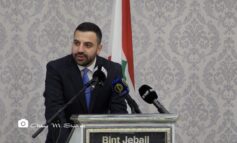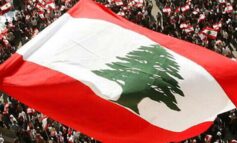
BEIRUT — Unresolved disputes and sectarian rancor have bubbled to the surface in Lebanon this week, jeopardizing the brief respite provided by the Doha agreement to end the 18-month political crisis. Having filled a six-month presidential void by the election of Michel Suleiman on 25 May, the country may be on the brink of yet another political vacuum. Lebanon’s leaders have returned to what they do best — squabbling over cabinet seats and jockeying for position.
In a possible taste of things to come in the event of a breakdown, clashes broke out in the northern city of Tripoli between Sunni anti-Syrian government supporters in Bab Al-Tebbaneh and supporters of the opposition in Alawis. At least nine people were killed and 50 injured.
Sectarian fighting between the two areas has been common for years, but exacerbated when the country polarized between the pro-Western ruling faction and their opponents three years ago. Security incidents have been frequent over the past couple of weeks, and last week, at least three people were killed in clashes in the eastern Bekaa Valley, also an area with mixed Sunni-Shi’a pockets.
Despite last May’s settlement at Doha, which is widely credited with averting civil strife after fighting that killed about 80 people, the pro-Western 14 March parliamentary majority and the opposition led by Hizbullah remain at loggerheads. The country is awash with arms.
The army and security forces rolled in and imposed order in Tripoli, but the clashes were a reminder that the country remains split and that forming a national unity government, as prescribed by Doha, is a challenging task.
“The violence is partly planned; the two sides are putting pressure on each other through the streets,” said Osama Safa, head of the Lebanese Centre for Policy Studies. For now, such skirmishes are likely to remain at a relatively low level, since each side hopes to benefit from the next government line-up and has its eye on the greater prize of the parliamentary elections next May.
“I think if we don’t see a cabinet this week, these security incidents could overcome the formation of the government and it could be quite a while,” Safa said.
Khaled Saghieh wrote in his column in the pro-opposition daily Al-Akhbar that the northern clashes are unusual. “No one knows why they stop and no one knows why they start. They seem connected to the general political situation but through a thin, almost invisible, line,” he wrote. “But what is clear for all to see is that these two areas host the poorest communities in Tripoli, and maybe in the whole country.”
Overwhelmingly Sunni Bab Al-Tebbaneh is a laboratory for Lebanon’s neo-feudal, sectarian politics, with local zaeems (strongmen) such as Omar Karami competing with Al-Hariri’s Future Movement and Islamist groups for influence. Residents complain that the zaeem ‘s concern is only exhibited during Ramadan and election time, usually in the form of free food. Others told Al-Ahram Weekly they are paid to hang posters from their balconies.
“Why do the poor inhabitants of Bab Al-Tebbaneh have to carry the throne of Al-Hariri, especially as the ones sitting on it gave them nothing but a few crumbs to keep them alive in exchange for votes?” Saghieh asked.
Analysts say that the Doha deal was not at all a real cure for the deep rift between the pro-Western faction and their opponents that has split Lebanon since former prime minister Rafik Al-Hariri’s assassination three years ago, and which deepened shortly after the July 2006 war.
“Doha was a temporary truce that averted war and everyone is grateful for that, but it doesn’t change anything, it simply postpones the next battle, whether political or military,” said Karim Makdisi, assistant professor for political studies and international relations at the American University of Beirut.
“Unfortunately, the sectarian tone of the dispute has gotten worse, not better,” he added. He blamed the last three years of tensions during which the political battle has hardened across sectarian lines, with Sunnis overwhelmingly supporting Prime Minister Fouad Al-Siniora’s bloc and Shi’a the opposition, made worse by the prevailing international sectarian rhetoric concerning the region over the past few years of conflict in Iraq.
The opposition forces of Hizbullah and Amal, and Christian Free Patriotic Movement leader Michel Aoun, started off with a more national agenda, but have increasingly employed sectarian logic along with the government loyalists, Makdisi said.
Doha had three main results: averting the civil war that appeared likely during the May troubles; marking the emergence of Qatar as a major regional player, and showing waning U.S. and Saudi influence, he said. “U.S. policy in the region is in disarray, with Washington’s allies in Lebanon and Palestine and elsewhere doubting its commitment at this point.”
U.S. Secretary of State Condoleezza Rice landed in Beirut for an unannounced visit last week, which many interpreted as an attempt to administer a shot in the arm for the pro-U.S. team as they wrangle for cabinet seats. The opposition won a veto-wielding third in that cabinet, with Prime Minister Al-Siniora to remain at the helm.
Nonetheless, Makdisi said, the current squabbling erupted despite heavy involvement by the U.S. and Saudi Arabia on one side and Syria and Iran on the other over the past few years. “This is no longer the U.S., Saudi Arabia and Syria holding things up; this is the usual Lebanese bickering and politicking before next year’s elections,” he said.
Most disagreements over who gets what appear to have been hammered out, but a sticking point remains the decision by Suleiman, who appoints three ministers under the Doha settlement, to retain Elias Al-Murr as defense minister. Aoun, whose presidential ambitions were thwarted by the Doha deal, was reported as saying Al-Murr should be counted as part of the 14 March parliamentary majority’s quota.
“Everyone’s trying to work out which minister to put where to gain a favorable position before the elections,” Makdisi said. The most heated discussions have not only been over key ministries, but over service-related positions such as energy, water and transport, which enable ministers to improve services to their patronage networks.
If and when a government is formed, the wording of any ministerial policy statement it issues is likely to be a further sticking point, particularly concerning Hizbullah’s weapons. A year of wrangling before the elections then appears likely, analysts say.
Reprinted from Al Ahram





Leave a Reply